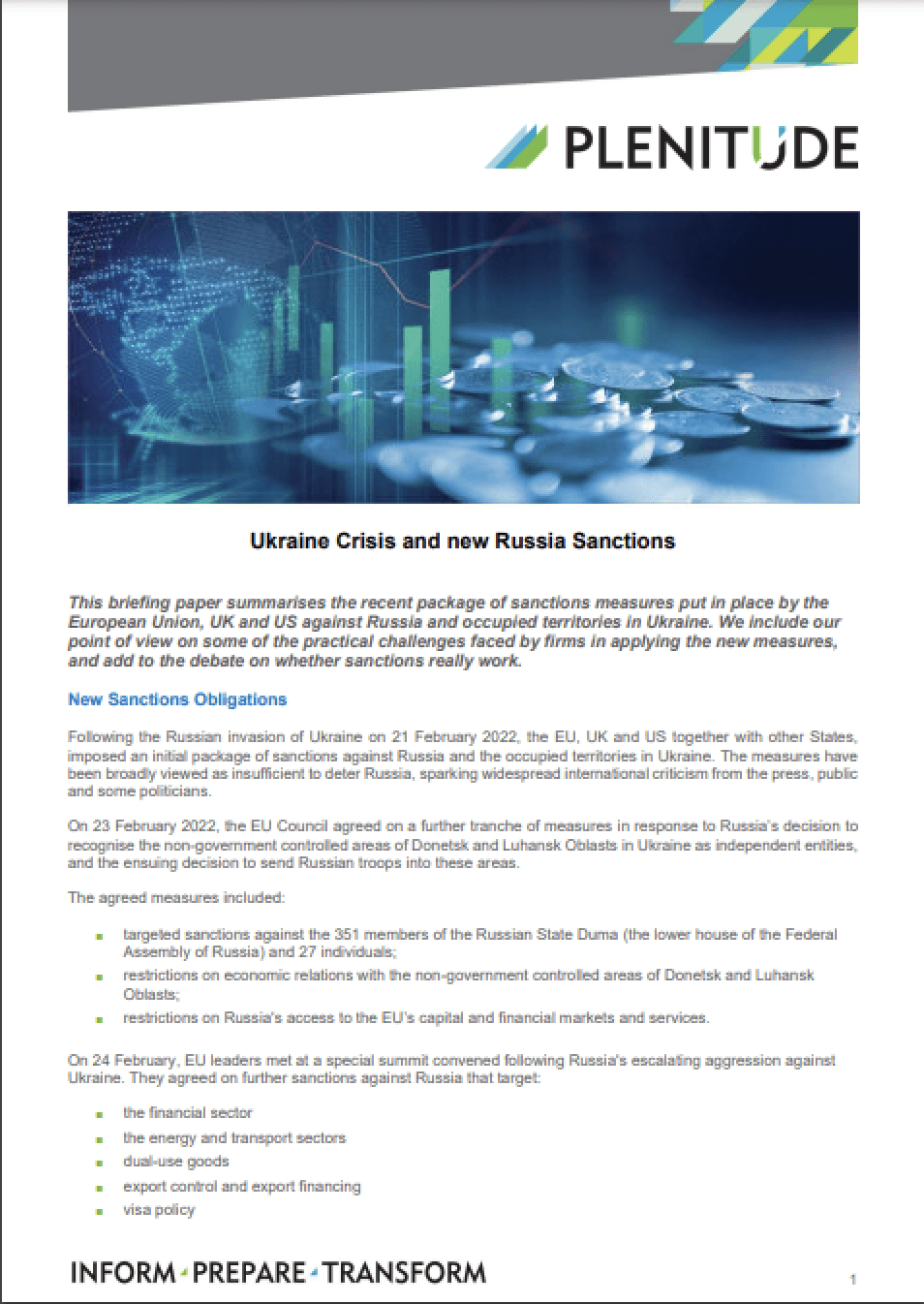Following the Russian invasion of Ukraine on 21 February 2022, the EU, UK and US together with other States, imposed an initial package of sanctions against Russia and the occupied territories in Ukraine. The measures have been broadly viewed as insufficient to deter Russia, sparking widespread international criticism from the press, public and some politicians.
On 23 February 2022, the EU Council agreed on a further tranche of measures in response to Russia’s decision to recognise the non-government controlled areas of Donetsk and Luhansk Oblasts in Ukraine as independent entities, and the ensuing decision to send Russian troops into these areas.
On 25 February, the EU decided to freeze the assets of Vladimir Putin, President of the Russian Federation, and Sergey Lavrov, Minister of Foreign Affairs. In addition, the EU has imposed restrictive measures on members of the National Security Council of the Russian Federation and on the remaining members of the Russian State Duma who supported Russia’s immediate recognition of the self-proclaimed Donetsk and Luhansk ”republics”.
The Council has also agreed on a further package of individual and economic measures to respond to the unprovoked and unjustified military aggression carried out by the Russian Federation against Ukraine. These sanctions cover the finance, energy, transport and technology sectors, as well as visa policy.
Conclusion
Despite the perception that some sanctions can be limited in terms of their impact, the new SWIFT and Russian Central Bank sanctions, coupled with existing measures, will undoubtedly hurt Russia as evidenced by the devaluation of the rouble and doubling of the interest rate to 20%. It is clear that by doubling down on the sanctions measures, NATO countries have created a situation where Putin and Russia will feel an immediate impact and bite. This is preferable to a prolonged and drawn out situation that does not create an immediate impetus for Putin to change his course of direction, or where the sanctions have a long term economic impact on the Russian economy and people as outlined earlier. However, given the dynamic nature and unintended consequences of sanctions, it is important that the EU, UK and US monitor the situation carefully and adjust as appropriate, depending on whether Russia falls into line.
At Plenitude our primary objective is to ensure our clients are meeting their Financial Crime Compliance obligations effectively and efficiently, which includes sanctions obligations. However, the current Ukraine crisis has brought into sharp focus the challenges that FIs face (at an organisational and staff level) implementing the new measures, against a backdrop of navigating an already complex set of sanctions regimes globally.
In writing this paper, we spoke to multiple clients at a broad range of financial institutions who have been under unprecedented pressure to assess and implement the new measures. They told us they are driven by the requirement to ensure their respective firms meet their regulatory obligations, but also contribute to the worldwide effort to support Ukraine and hopefully change the path of Russia.
Amongst all of this, we would like to extend our heartfelt support and solidarity to the people of Ukraine, and hope that the efforts of the wider industry and unwavering support from Financial Crime Compliance professionals influence the outcome of the current crisis.



 Alan Paterson
Alan Paterson
 Plenitude Insights
Plenitude Insights Sanctions
Sanctions Advisory and Transformation
Advisory and Transformation



